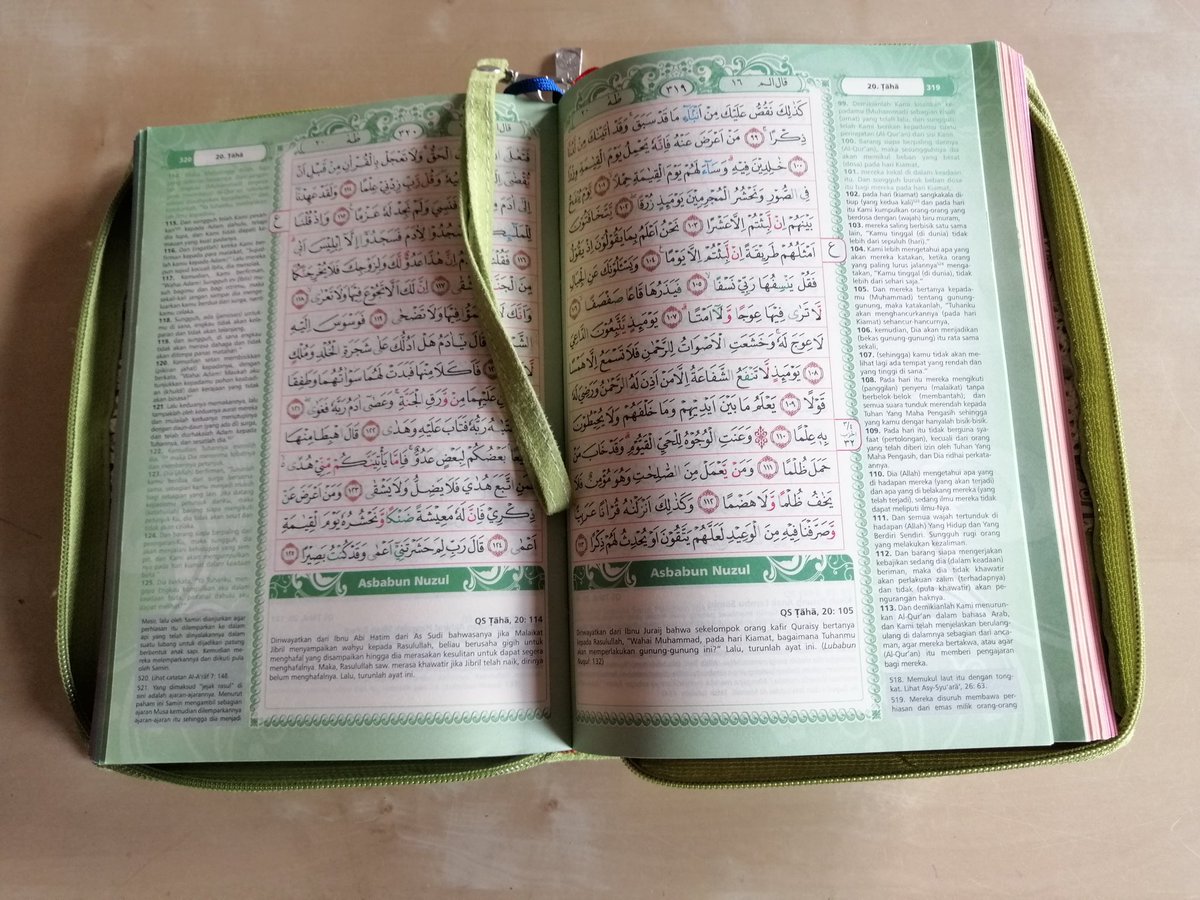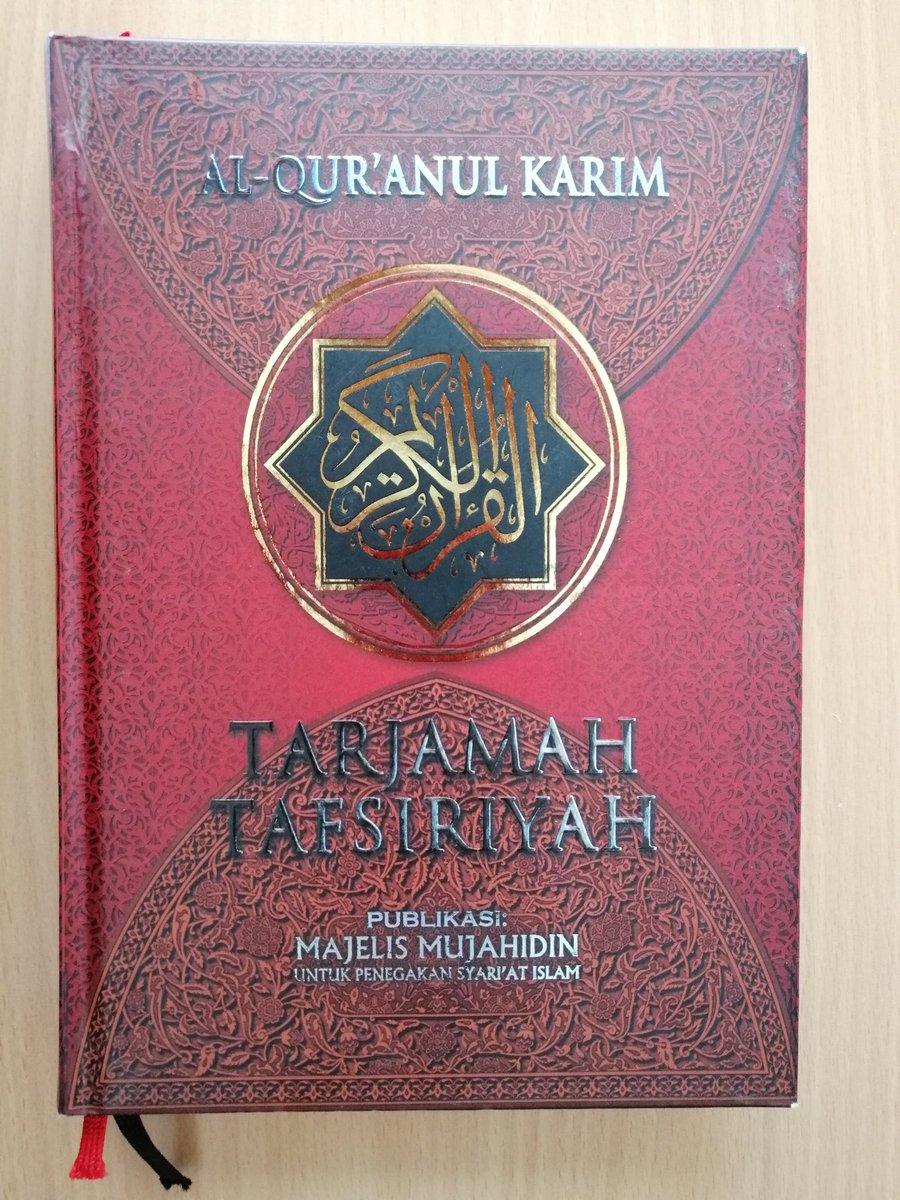
“This work”, says the publisher, “was not named ‘The Qur’an and its Translation’, because its author, M. Quraish Shihab, was acutely aware that the Qur’an is a holy book that cannot possibly be translated into any other language.” #qurantranslationoftheweek 🌏🇮🇩 
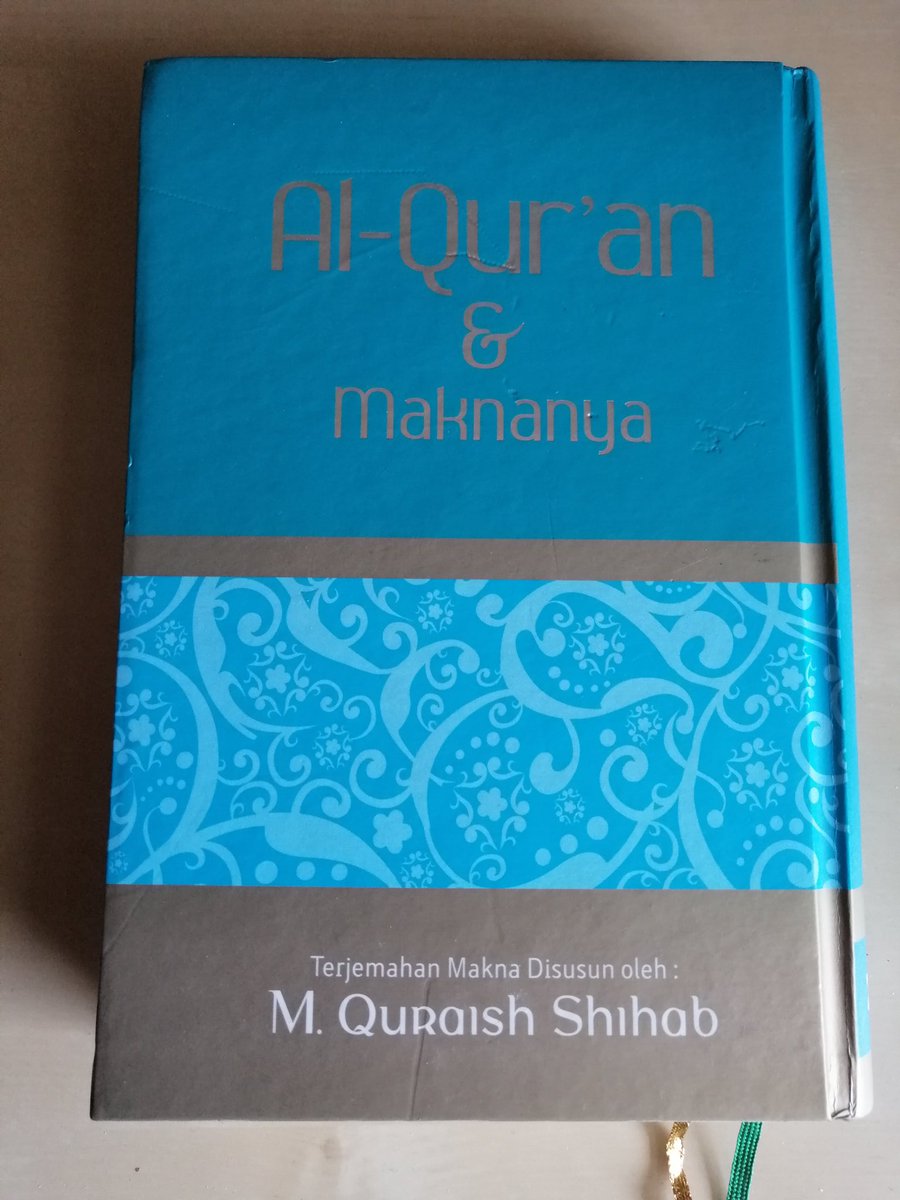
Nevertheless, Muhammad Quraish Shihab’s (MQS)“Al-Qur’an dan Maknanya” (“The Qur’an and its Meanings”, first published in 2010) comes across as a Qur’an translation, rather than a qur’anic commentary.
Published in a single 650-page volume, which includes both the Arabic text of the Qur’an and an appendix that summarizes the content of all surahs, the work renders the meaning of the Qur’an into Indonesian verse by verse. 
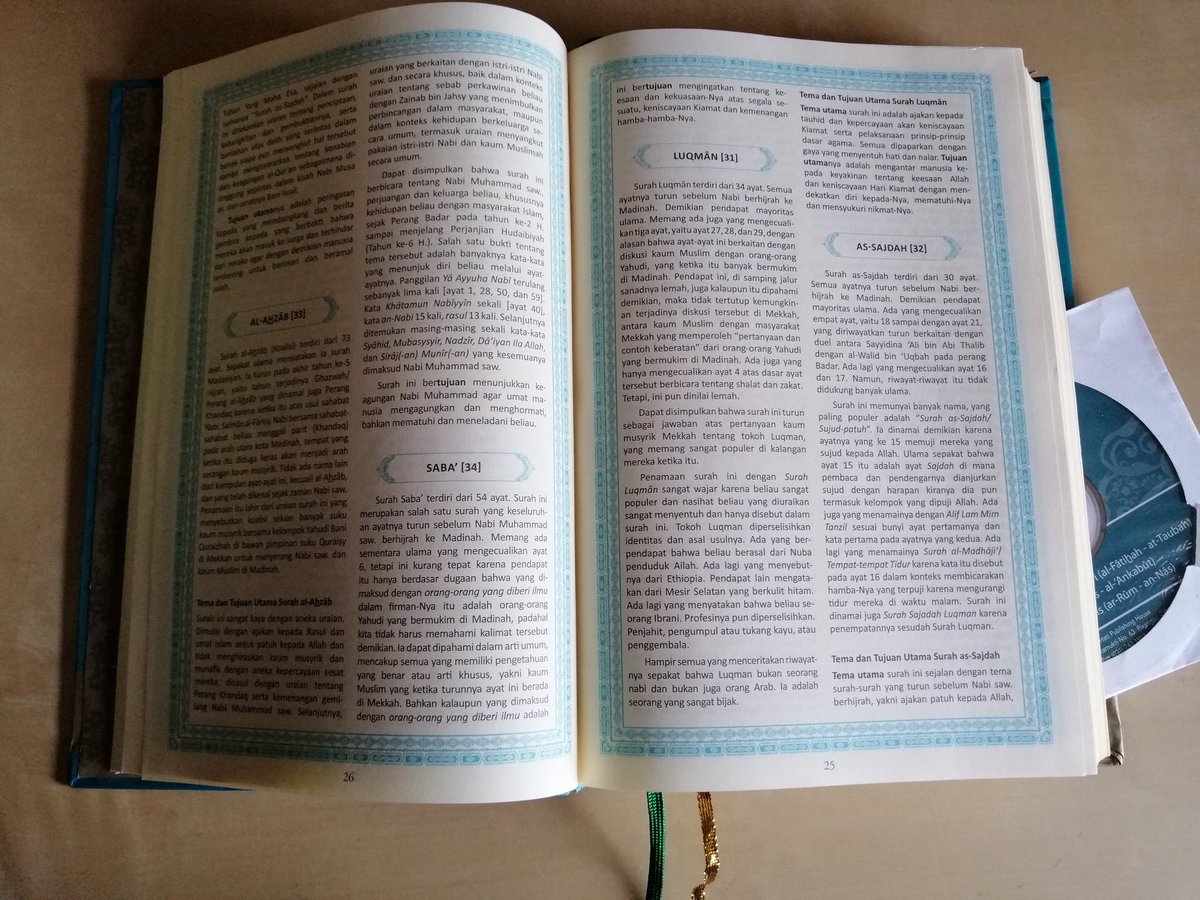
Some footnotes contain additional explanations, and the occasion of revelation of a segment of the Qur’an is infrequently provided, but the proportion of such additional material is small. 

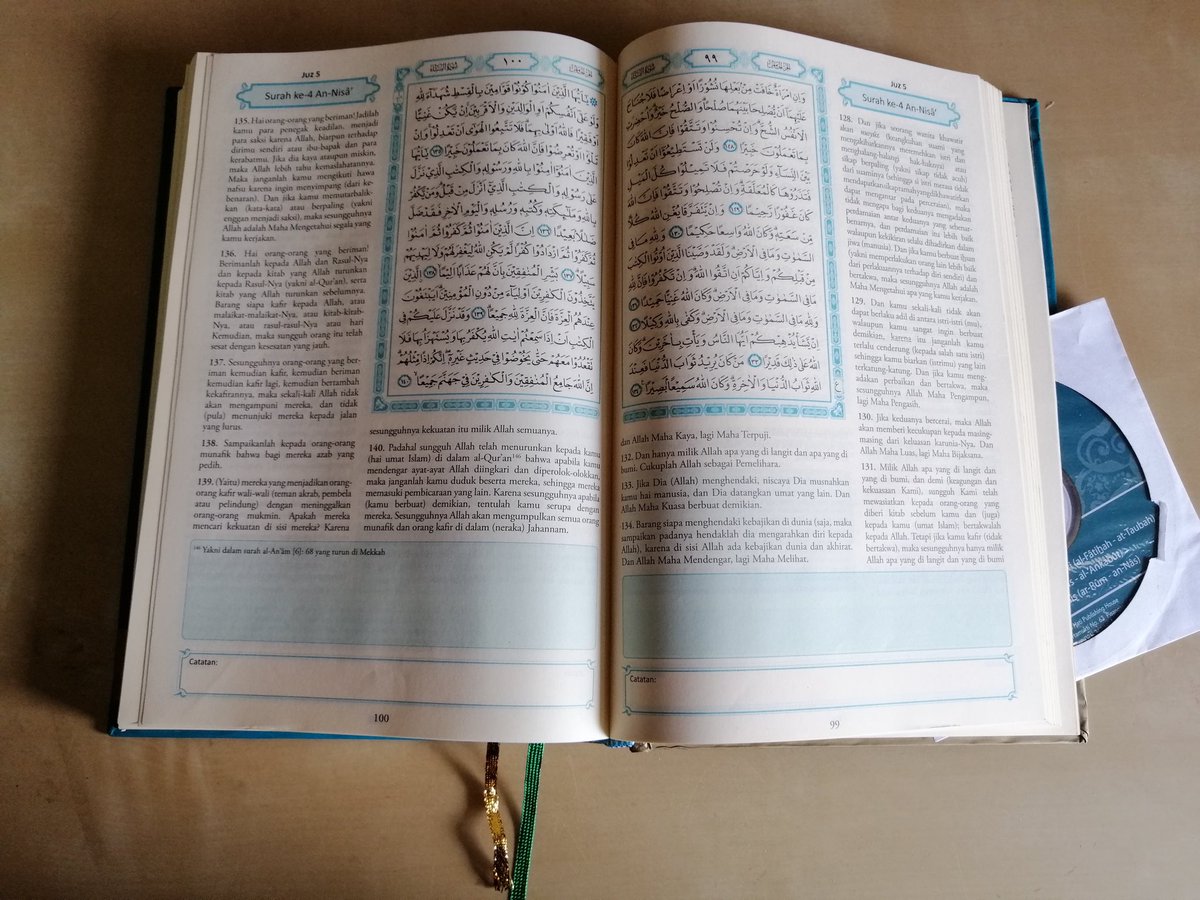

MQS (b. 1944) is a prolific Indonesian exegete, and a highly visible one as well, as he was the country’s first TV exegete. In 2004, he began hosting TV programmes that focused exclusively on the interpretation of the Qur’an.
In marked contrast to the often emotional performances of popular preachers, he presented himself as a traditional scholar whose calm and reasoned discourse is embedded in the Sunni exegetical heritage.
His authority as a religious scholar is bolstered by his Hadhrami decent and his PhD degree from al-Azhar University in Egypt, an institution which holds high prestige in Indonesia. (See dx.doi.org/10.17169/refub…).
MQS draws heavily on al-Azhar’s prestige in his “Al-Qur’an & Maknanya”, too. In the introduction, he cites a fatwa from al-Azhar on the permissibility of translating the Qur’an. He mentions al-Azhar’s concise qur’anic commentary “al-Muntakhab” as his main source.
MQS aims to avoid the pitfalls of a “literal translation” and to give the complete meaning of verses, even if that means adding explanations that the source text does not contain.
By explicitly taking this stance, he positions himself in in the debate over the correct method of translating the Qur’an that is going strong in Indonesia, not least because this debate often implicitly or explicitly involves criticism of the government translation.
Called “The Qur’an and its Translation” (“Al-Qur’an dan terjemahnya”), the translation produced and published by the Indonesian Ministry of Religious Affairs dominates the Indonesian market and targets the same readership that MQS presumably wants to reach.
MQS avoids any explicit mention of “Al-Qur’an dan terjemahnya”. However, he does draw on it quite heavily, to the extent that his work often appears to be a revised version of the government translation, but with significant changes, additions, and occasionally deletions.
Q 5:51, one of the most contested qur’anic verses in today’s Indonesia, instructs the believers, “Do not take the Jews and Christians as awliyāʾ”. The Ministry of Religious Affairs has translated the term “awliyāʾ”, the plural of the Arabic noun “walī”…
…as “leaders” (“pemimpin-pemimpin”) in older editions and “loyal friends” (“teman setia”) in more recent ones. Quraish Shihab has “wali-wali (teman dekat dan penolong)”, meaning “wali-wali (close friends and helpers)”.
He strives to do justice to the multiplicity of possible meanings by mentioning two or more common interpretations, and he tries to harmonize between them as he does in this case, where “awliyāʾ” are “close friends AND helpers” rather than “close friends OR helpers”.
In his rendition of another contested verse, Q 4:34, he adds substantial exegetical content to mitigate the impact of a translation that in its literal meaning gives a husband permission to beat his wife.
The relevant segment reads “dan (jika itu belum membuatnya jera) pukullah mereka (dengan cara yang tidak menyakitkan)”, meaning “and (if the previous measures have not acted as a deterrent), beat them (in a manner that does not hurt them)”.
MQS is not particularly interested in discussing theological problems such as anthropomorphism; his primary concern lies clearly with the ethics of contemporary society. However, he emphasizes the importance of Arabic philology.
This sometimes results in a long-winded, cumbersome style. For example, the first segment of Q 22:18 (“a-lam tara anna llāha yasjudu lahu man fī l-samawāt wa-man fī l-arḍ …”) is translated by the Ministry of Religion in simple and comprehensible Indonesian…
…as “Do you not know that everyone who is in the heavens and everyone who is on earth bows down to God…” (“Tidakkah engkau tahu bahwa siapa yang ada di langit dan siapa yang ada di bumi bersujud kepada Allah…”).
MQS translates it along the following lines: “Are you not aware that God, to Him bows down (is submissive and obedient) everyone (and everything) that is in the Heavens, and everyone (and everything) that is on earth…”
A second edition of this work was published but is currently out of print, which is an indication that “Al-Qur’an & Maknanya” does not seem to have been particularly successful. There are probably several reasons for this.
First, when it comes to the Indonesian market for Qur’an translations it is hard, maybe next to impossible, to carve out a space for any work besides the government translation.
MQS’s individual authority as a respected scholar cannot compete with that of the Ministry of Religious Affairs. Second, Quraish Shihab’s translation has only been published as a printed book, accompanied by a CD with recitations; there is no app or online version. 

Third, it seems likely that the target audience preferred the government translation’s simpler, more accessible style while turning to either more extensive or thematically-structured works when looking for exegetical content.
#qurantranslationoftheweek
~JP~
#qurantranslationoftheweek
~JP~

• • •
Missing some Tweet in this thread? You can try to
force a refresh

